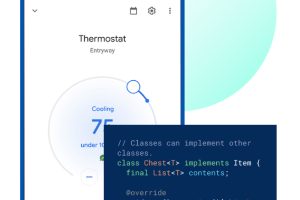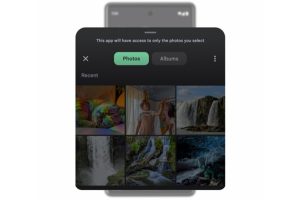The Beta 3 contains accessibility features such as non-linear font scaling, privacy upgrades (partial photos/videos access), new animation support in gesture navigation, and to “further align” with the OpenJDK 17 LTS release.
Also, in terms of security changes, apps targeting Android 14 can no longer send certain implicit intents to internal components, says Google.
“Runtime registered broadcast receivers must specify export behavior, unless they are receiving only system broadcasts. Dynamically-loaded code files must be marked as read-only.
ZipFile(String)andZipInputStream.getNextEntry()throws a ZipException if zip file entry names contain “..” or start with “/” to prevent the Zip path traversal vulnerability. There are additional restrictions on starting activities from the background, and updated restrictions to calling non-SDK interfaces.”
Stability
The Platform Stability milestone is intended to help with final testing and releases – it means that Android 14 has reached final internal and external APIs, final app-facing behaviours, and final non-SDK API lists. Basically, from this point, you can expect no further changes affecting your apps.
For testing an app with tablets and foldables, Google recommends using the 64-bit Android Emulator system images for the Pixel Tablet or Pixel Fold configurations, which are found in the latest preview of the Android Studio SDK Manager. You can also enroll any supported Pixel, including the new Pixel 7a, to get this and future Android 14 Beta and feature drop Beta updates over-the-air.
As you can see from the timeline below, the Final Release is expected in the late summer/autumn of this year.
Android 14 features
We reported back in February that Google had begun its journey towards Android 14, its next major release of the operating system.
Google says it aims to optimise the way apps work together, improve system health and battery life, and improve the end-user experience. As you would expect, developer productivity, strengthened privacy and security, enhanced performance, and more user customisation, is also mentioned.
See also: Gadget Watch: Google folds Pixel phone
 Electronics Weekly Electronics Design & Components Tech News
Electronics Weekly Electronics Design & Components Tech News






